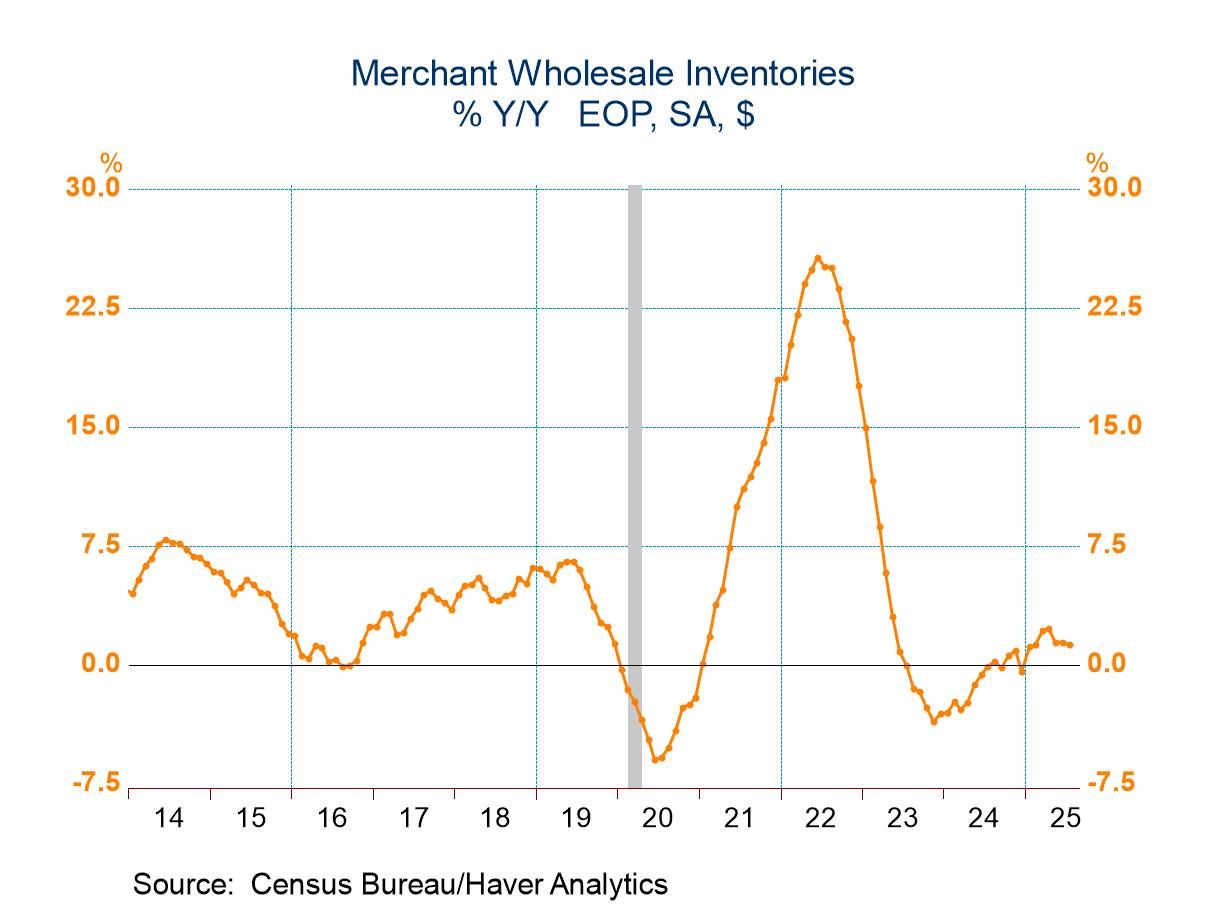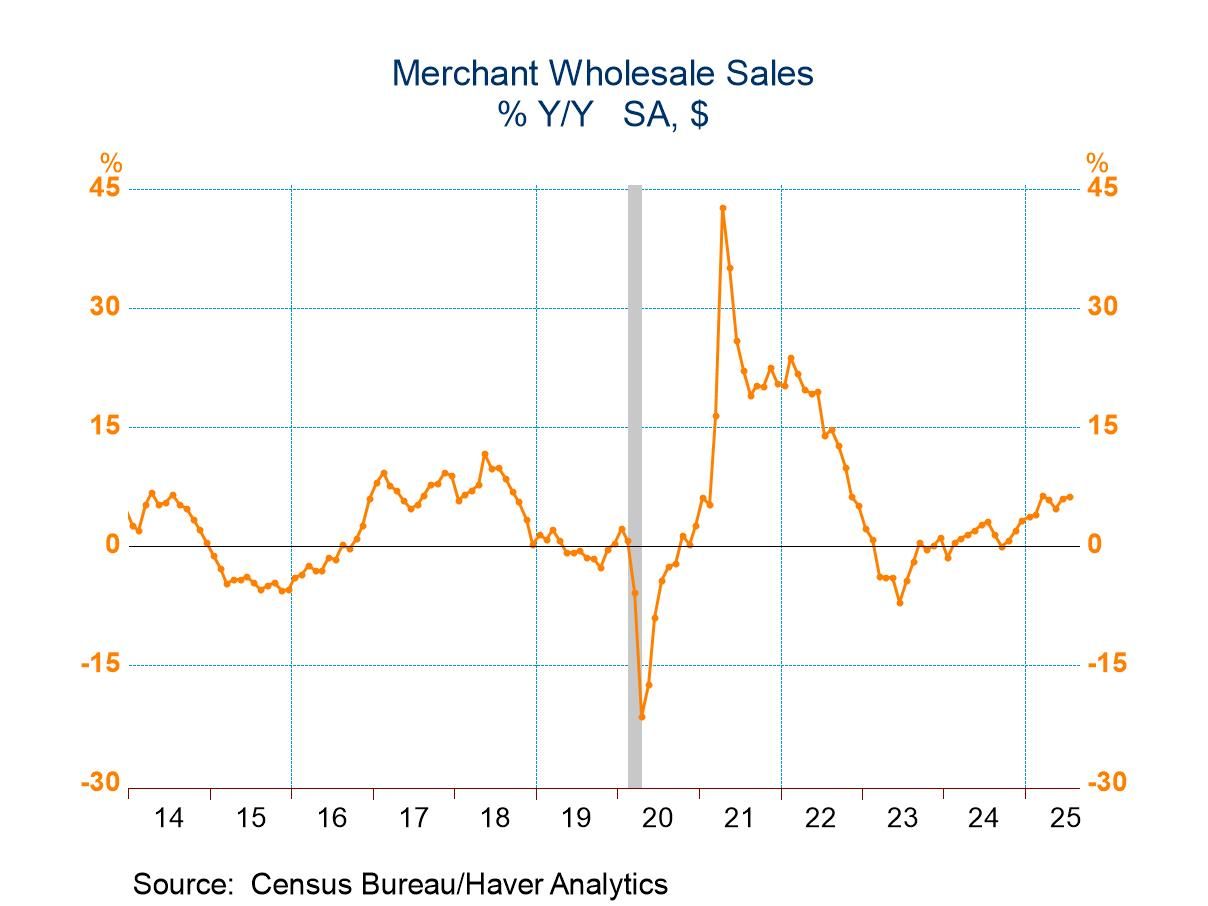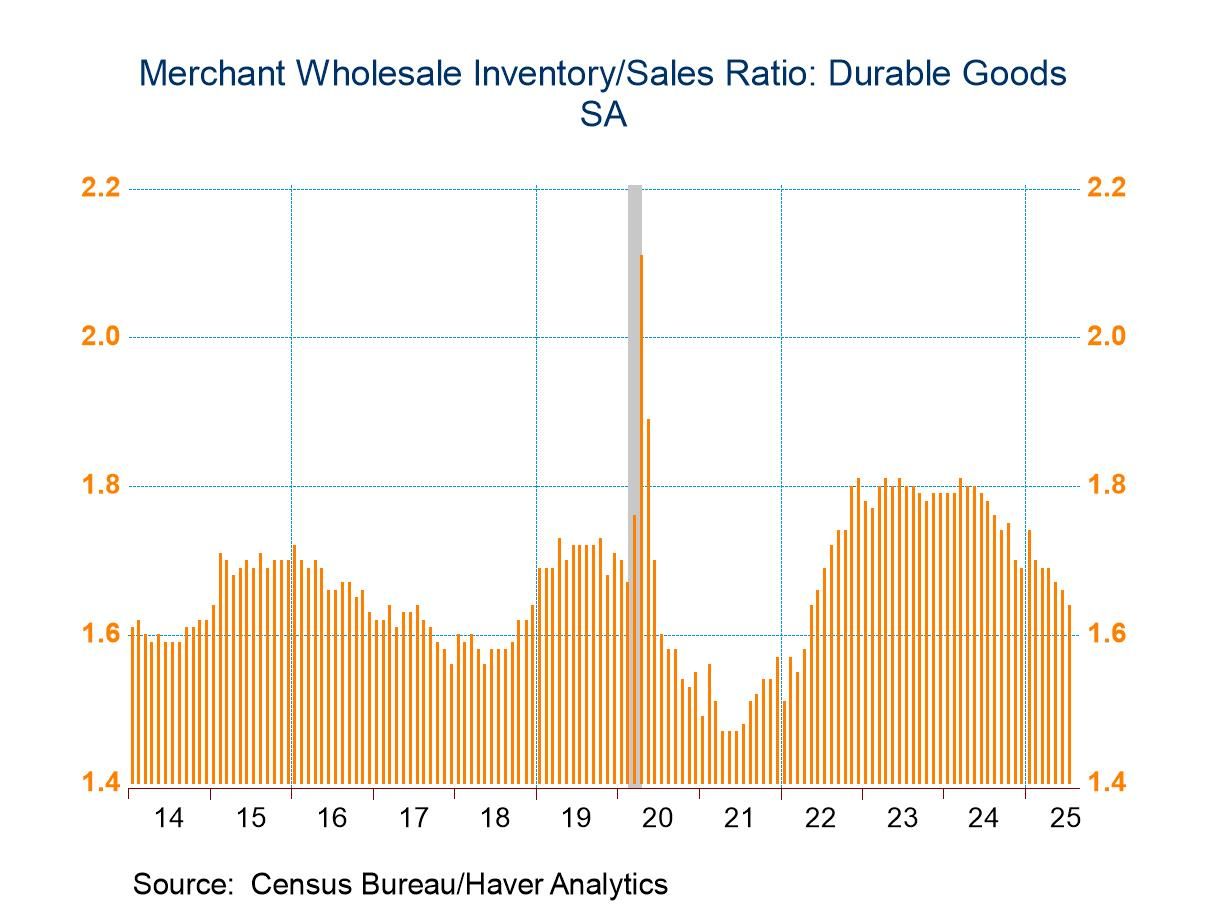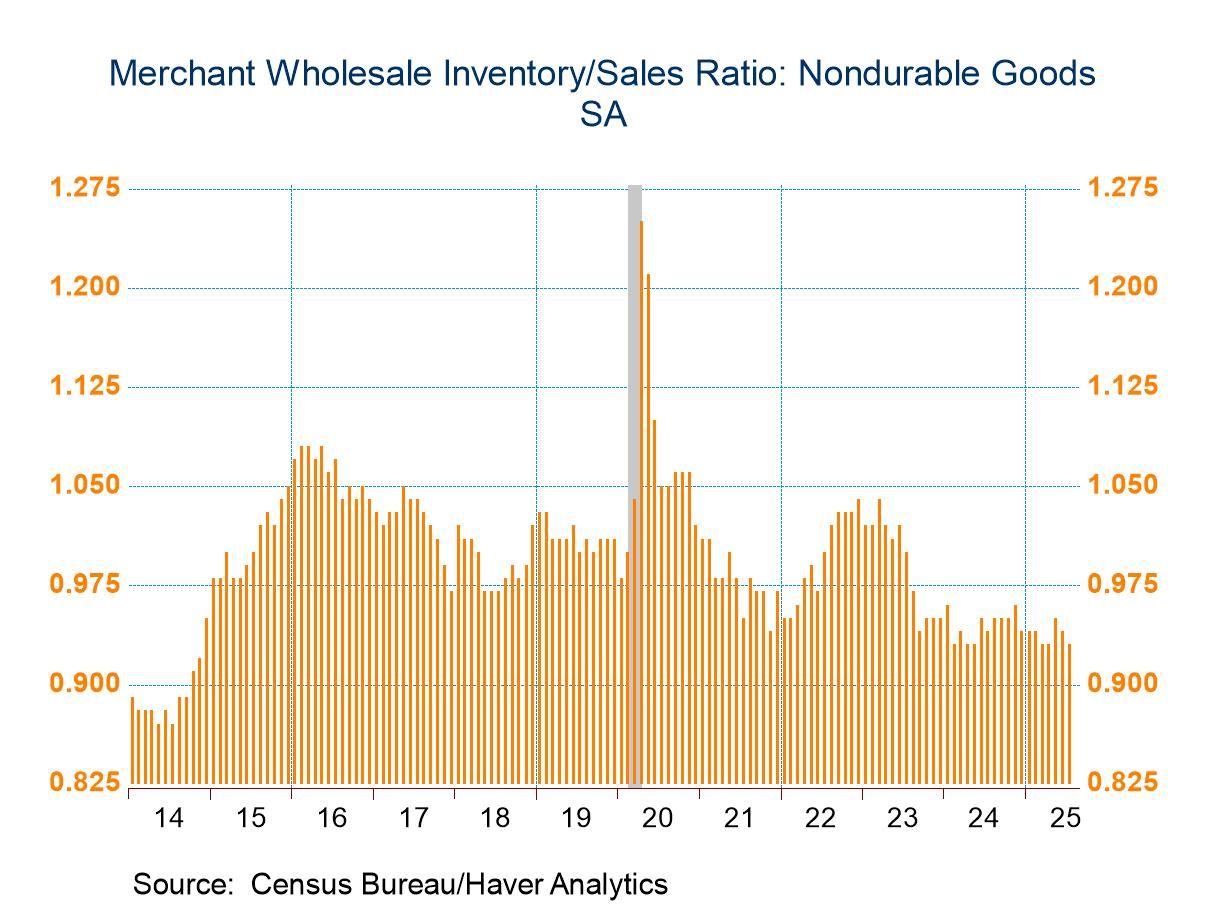U.S. Wholesale Inventories Edge Higher in July; Sales Surge
by:Tom Moeller
|in:Economy in Brief
Summary
- Durable goods inventories fall as nondurables rise.
- Sales strengthen broadly.
- I/S ratio eases to another three-year low.


Wholesale inventories increased 0.1% (1.3% y/y) during July after edging 0.2% higher in June. The gain equaled the advance report issued in late-August and the June rise was revised from a 0.1% increase. The latest gain compared to a 0.2% increase expected in the Informa Global Markets survey.
Durable goods inventories eased 0.2% during July (-0.1% y/y) after rising 0.2% in June. Motor vehicle inventories fell 1.6% (-7.7% y/y), the third straight month of decline. Electrical equipment inventories declined 0.7% (-0.5% y/y) after a 2.5% jump. Hardware & plumbing product inventories were off 0.3% (+7.9% y/y) after easing 0.1%. Furniture & home furnishings inventories fell 0.4% (+4.6% y/y) after rising 0.1% in June. Offsetting these declines, professional & business equipment inventories rose 0.8% (6.8% y/y) after rising 0.3% in June. Machinery inventories increased 0.6% (-1.2% y/y), after edging 0.1% higher in April. Metals inventories rose 0.4% (2.1% y/y) following a 0.8% gain.
Inventories of nondurable goods during July rose 0.7% (3.6% y/y) after edging 0.1% higher in June. Drug inventories increased 1.8% (5.3% y/y) after a 0.8% gain and apparel inventories increased 1.9% (-1.0% y/y) following a 2.4% fall. Grocery inventories increased 2.0% (13.3% y/y) after a 0.9% June rise. Paper inventories were off 0.4% (+5.2% y/y) following a 0.8% decline while chemical inventories slipped 0.1% (-0.2% y/y) after rising 2.0%. Petroleum & petroleum product inventories declined 3.4% (-6.6% y/y) following a 3.8% increase.
Wholesale sales increased 1.4% (6.2% y/y) in July after rising 0.7% in June. A 0.2% increase had been expected in the Action Economics Forecast Survey. Sales of durable goods rose 1.3% (8.6% y/y) in July after rising 0.7% in June. Sales of electrical equipment improved 2.5% (18.0% y/y) following a 0.7% rise. Metals & minerals sales gained 1.9% (7.3% y/y) following a 1.1% increase. Furniture sales rose 0.5% (-4.5% y/y) after falling 2.4%. Professional equipment sales improved 2.9% (10.5% y/y) after rising 0.6%. Working lower, vehicle sales fell 1.7% (+0.9% y/y) after a 0.9% decline. Machinery sales fell 0.9% (+4.0% y/y) after rising 0.5% in June.
Sales of nondurable goods moved 1.6% higher (4.1% y/y) during July after rising 0.6% in June. Paper sales rebounded 3.5% (3.4% y/y) after falling 1.9% in June. Drug sales rose 2.5% (12.6% y/y) after rising 1.3% in June . Petroleum sales increased 2.2% (-6.5% y/y) after rising 2.7%. Grocery store sales increased 1.1% (6.2% y/y) after falling 0.4% in June. Sales of apparel declined 1.3% (+3.7% y/y) after rising 0.7%.
The July inventory-to-sales ratio in the wholesale sector fell to 1.28 in July from 1.29 in June. It was the lowest ratio since June 2022. The durable goods I/S ratio declined to 1.64, down from the 1.81 high in March of last year. The ratio ranged from 2.89 for machinery to 0.94 for electrical equipment. The nondurable goods I/S ratio eased to 0.93 in July from 0.94 in June. The I/S ratio for apparel was 2.03 in July while for petroleum it was 0.32.
The wholesale trade figures are available in Haver's USECON database. The expectations figure for inventories is contained in the MMSAMER database. Expectations for sales are from the AS1REPNA database.


Tom Moeller
AuthorMore in Author Profile »Prior to joining Haver Analytics in 2000, Mr. Moeller worked as the Economist at Chancellor Capital Management from 1985 to 1999. There, he developed comprehensive economic forecasts and interpreted economic data for equity and fixed income portfolio managers. Also at Chancellor, Mr. Moeller worked as an equity analyst and was responsible for researching and rating companies in the economically sensitive automobile and housing industries for investment in Chancellor’s equity portfolio. Prior to joining Chancellor, Mr. Moeller was an Economist at Citibank from 1979 to 1984. He also analyzed pricing behavior in the metals industry for the Council on Wage and Price Stability in Washington, D.C. In 1999, Mr. Moeller received the award for most accurate forecast from the Forecasters' Club of New York. From 1990 to 1992 he was President of the New York Association for Business Economists. Mr. Moeller earned an M.B.A. in Finance from Fordham University, where he graduated in 1987. He holds a Bachelor of Arts in Economics from George Washington University.
More Economy in Brief
 Global| Feb 05 2026
Global| Feb 05 2026Charts of the Week: Balanced Policy, Resilient Data and AI Narratives
by:Andrew Cates






